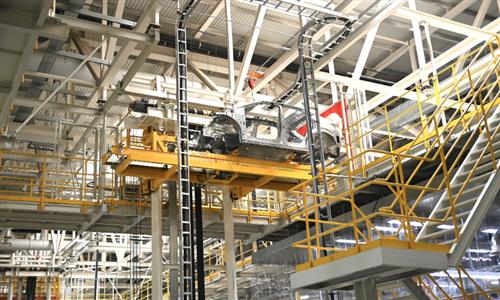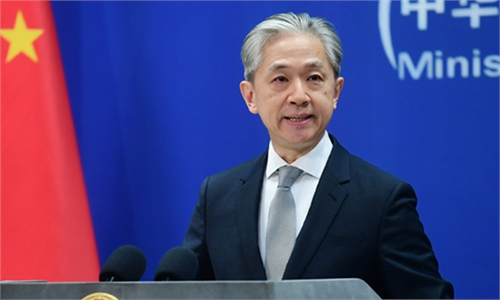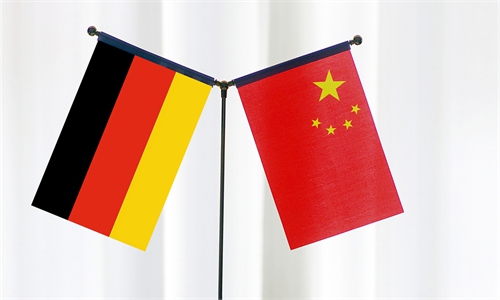
Illustration: Xia Qing/GT
China is increasingly becoming an attractive hub for German companies to carry out research and development (R&D) to remain competitive in both the local and global markets, the South China Morning Post (SCMP) reported on Tuesday, citing a survey released by the German Chamber of Commerce in China. Such studies offer a new perspective for people to see the economic interaction between China and the EU.As China enters a new stage of development, attention is increasingly focused on its ascent in sectors such as electric vehicles (EVs) and other high-tech industries. Made-in-China products have competitive advantages, but this is not due to so-called "government subsidies." Rather, it is because of China's advantages in terms of value chains, talent, infrastructure and logistics. Among them, the growth of R&D capabilities is an important factor contributing to China's competitive advantages.
Amid an increasingly complex external environment marked by rising protectionism and blockades, China is stepping up efforts to accelerate innovation, improve its global competitiveness in the economic, technological and other fields, and build a better and more open environment that is more conducive to scientific innovation.
Achievements have been made step by step, inch by inch, along the way. In 2023, China's R&D expenditure exceeded 3.3 trillion yuan ($463.7 billion), up 8.1 percent year-on-year, continuing the momentum of faster growth. R&D not only enhances the competitiveness of the country's traditional industries, but also lays a solid foundation and injects impetus into the development of emerging industries.
Previously, developed countries had a technological advantage, while China's advantages lay in lower costs and skilled workers. However, that situation is changing, which is why China is increasingly becoming an attractive hub for German companies to carry out R&D.
Multinational corporations vote with their feet. By investing in China's high-tech industries, foreign companies can take advantage of China's technological edge and turn it into their own competitiveness.
In recent years, China's high-tech industries became a bright spot in attracting foreign investment. The country is now an attractive investment destination for companies around the world to carry out R&D, and not just those from Germany.
Some Western developed countries have adopted protectionist measures against products from China when cooperation is desperately needed to stabilize the world economy. As an interesting comparison, many Western companies have chosen to invest in China, carry out R&D in the country, and utilize China's advantages to boost their own competitiveness. Clearly, Western investors, not Western politicians, have made the right choice in this regard.
An EV made in China and designed in Spain by Volkswagen's CUPRA brand would be "wiped out" if the European Commission followed through with planned import tariffs of 21.3 percent on the vehicle, Reuters reported on Tuesday, citing the brand's CEO. According to the Reuters report, the comments are the strongest yet by a carmaker affected by the EU's tariffs, highlighting worries that Brussels will hurt the domestic players it is trying to protect via its probe of so-called "Chinese subsidies" launched almost a year ago.
There is no doubt that the path of trade protectionism leads to a dead end. European policymakers should listen to the voices of the business community and create favorable conditions for European companies to invest in China, carry out R&D in the country, and take advantage of China's economic advantages, rather than the other way around, as shown in the anti-subsidy investigations into Chinese EVs.
More than 80 percent of the German companies surveyed indicated that their primary motivation for innovating in China was to cater to price-sensitive consumers and to keep pace with the growing innovation capabilities of local competitors, according to the SCMP report.
"Innovating in China" is a right way forward and future trend, as opposed to some political elites' paranoid anti-China practices and their approach of pursuing trade protectionism against China.
The author is a reporter with the Global Times. bizopinion@globaltimes.com.cn



